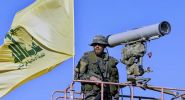In Lebanon, the word “resistance” has long been romanticized—chanted in songs, woven into political slogans and wrapped in the symbolism of national pride. Yet, behind this idealized notion lies a sobering truth: Lebanon is a nation trapped in a permanent state of conflict, with its sovereignty and future held hostage by Hezbollah’s military agenda. The price of this endless war footing is steep and increasingly unbearable.
The so-called “resistance” against Israel, led by Hezbollah, is no longer about liberation or defense. It is a strategic posture that serves the political survival of one party and the regional interests of its Iranian patron. And the consequences for Lebanon, both economically and politically, are devastating.
A War Economy Without the Economy
At the heart of the crisis is an economic collapse of historic proportions. Since 2019, Lebanon’s currency has lost over 95% of its value. Poverty now engulfs over 80% of the population. Entire sectors—banking, education and healthcare—have imploded. Yet, even amid this humanitarian disaster, Hezbollah continues to pour resources into military stockpiles, rocket arsenals and parallel state structures.
These are not simply budgetary choices; they reflect a national priority that privileges “resistance” over reconstruction. While other nations in the region attract foreign investment, build tech ecosystems and secure energy partnerships, Lebanon remains a black hole for capital. Who would invest in a country whose southern border can erupt into war at any moment? Where infrastructure is targeted in retaliation for missile launches? Where no peace agreement is even on the horizon?
The Price of No Peace
Nowhere is the cost of Hezbollah’s intransigence more visible than in Lebanon’s inability to move toward peace with Israel. While Arab states, such as the United Arab Emirates, Bahrain, Morocco and even Saudi Arabia, have taken diplomatic or economic steps toward normalization with Israel, Lebanon remains frozen in time, shackled to a conflict narrative that serves a militia, not a nation.
A peace agreement with Israel would not only end the threat of full-scale war but would unlock massive economic potential. Lebanon could benefit from joint energy exploration, tourism, trade and regional infrastructure projects. Israel, with its thriving high-tech sector and newly discovered natural gas reserves, is no longer just a former enemy, it is an economic opportunity.
But Hezbollah’s presence makes such a prospect politically radioactive. The group thrives on enmity with Israel; peace would undermine its raison d’être. Therefore, Lebanon is forced to forgo the strategic benefits enjoyed by its Arab neighbors in order to protect the mythology of resistance. That is not patriotism, it is self-sabotage.
Political Paralysis: A Hijacked Republic
The deeper tragedy is that Hezbollah’s grip extends far beyond the military sphere. Its armed status allows it to paralyze the Lebanese political system. No president can be elected, no cabinet can govern and no reform can pass without Hezbollah’s consent. It wields a de facto veto over national decision-making, subordinating Lebanese sovereignty to the calculations of Tehran.
This was most evident during the prolonged presidential vacuum following Michel Aoun’s departure. While Lebanon faced economic and institutional collapse, Hezbollah insisted on endorsing a candidate loyal to its axis, blocking consensus and deepening the national crisis.
Even when disaster struck—as it did with the 2020 Beirut port explosion—Hezbollah ensured that justice was obstructed. Judges were threatened, investigations stalled and accountability buried. This is not resistance, it is the erosion of the rule of law.
Regional Isolation
Lebanon’s alignment with Hezbollah’s regional agenda has isolated it from its historic allies. Gulf states have withdrawn their ambassadors, reduced aid and expelled Lebanese workers. Saudi Arabia, once a major benefactor, has publicly condemned Hezbollah’s dominance and pulled back funding. The Arab world does not view Lebanon as a partner, but as an Iranian satellite.
By contrast, countries that have taken steps toward peace with Israel have reaped tangible rewards—investments, joint ventures and expanded global partnerships. Lebanon, by contrast, is seen as a volatile outpost of Iranian influence rather than a sovereign state pursuing its national interest.
Even Western support is conditional. While the international community offers humanitarian aid, structural financial assistance is contingent on reforms that Hezbollah is unwilling to allow, lest they undermine its entrenched power.
The Human Toll
However, the greatest cost is borne by ordinary Lebanese: the student who emigrates because there are no jobs, the family that endures blackouts and food insecurity, the farmer in the South whose land is now a militarized buffer zone, the young child growing up without any notion of peace—only sacrifice, slogans and fear.
Hezbollah insists that resistance ensures dignity. But what dignity exists in hunger? In corruption? In endless war? The narrative has become hollow, its promise broken. What remains is a population trapped between regional geopolitics and local authoritarianism.
Toward a New National Vision
Lebanon must confront an uncomfortable but vital truth: resistance has become a trap. What once may have been a defensive necessity is now a political strategy that benefits one party at the expense of an entire nation. Peace with Israel is not surrender. It is an opportunity for stability, prosperity and reintegration into the Arab and global community.
Lebanon deserves more than survival. It deserves sovereignty over its borders, policies, economy and future. That future cannot be built on perpetual conflict. It must be built on diplomacy, accountability and national unity.
The cost of no peace is too high. Lebanon can no longer afford to pay it.




Comments